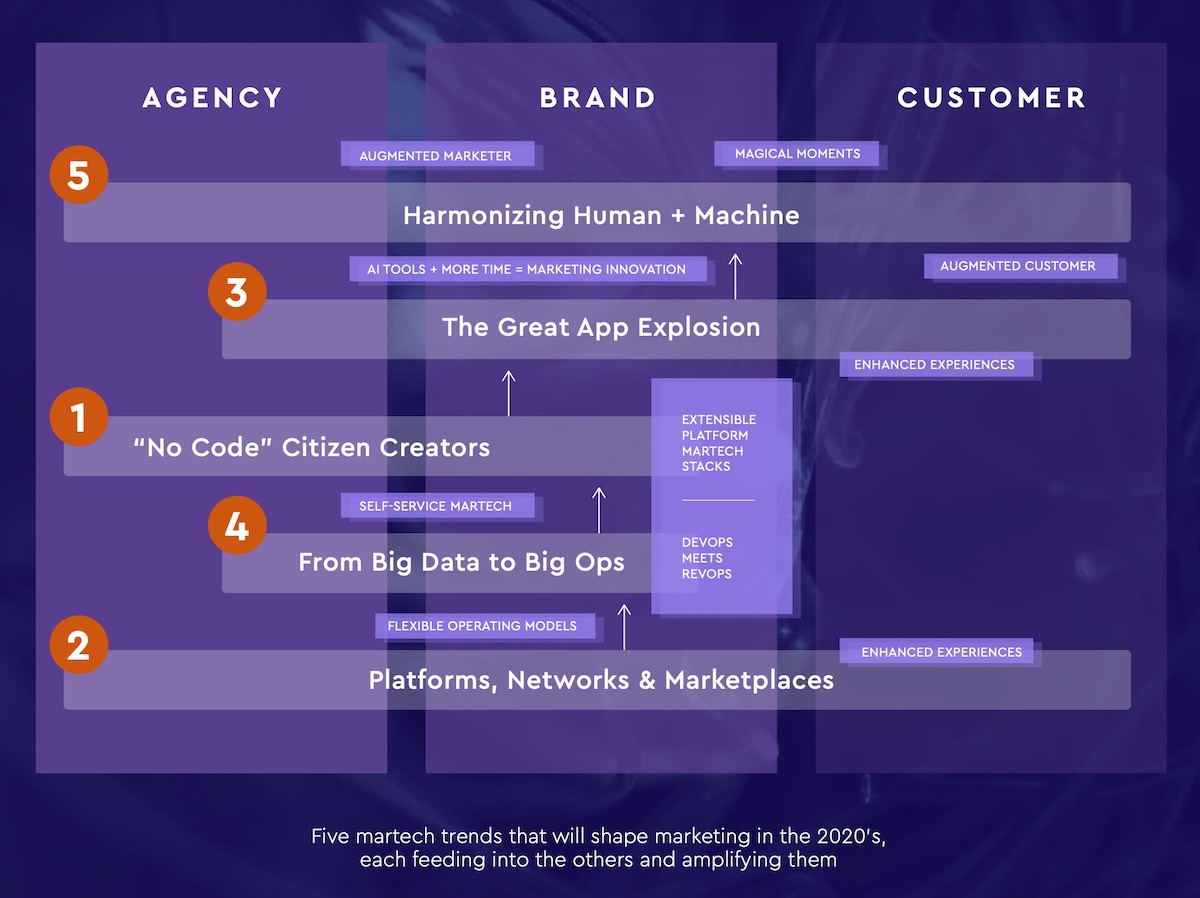
Four months ago, I started a collaboration with Jason Baldwin, the global head of product management at WPP, to write a paper on the major trends in marketing technology that we believe will shape the decade ahead for agencies and brands.
It wasn’t about guessing our own “hype cycle” of individual technologies. There are plenty of those predictions out there, and I’ve never found them particularly helpful for executives trying to shape their long-term strategies and capabilities development.
Instead, we stepped back to consider the second-order effects that so many of these different technological innovations are feeding — broad patterns of how marketing organizations are changing in a digital world. Of the five trends we researched, all of them are already emerging in practice. You can and should harness them today.
But we believe each of these patterns will grow exponentially over the next 10 years, redefining the very nature of marketing technology and operations:
- “No Code” Citizen Creators
- Platforms, Networks & Marketplaces
- The Great App Explosion
- From Big Data to Big Ops
- Harmonizing Human + Machine
In addition to our own research and analysis, we curated a series of interviews with seven senior executives from across WPP, tapping their experience and perspective on these topics:
- Cleve Gibbon, Chief Technology Officer, North America, Wunderman Thompson
- Lindsay Shirley, Chief People Officer, Wunderman Thompson Asia Pacific
- Stephan Pretorius, Chief Technology Officer, WPP
- Katherine Strieder, Chief Product Officer, GroupM Data and Technology
- Niel Bornman, CTO Data and Product, WPP
- Di Mayze, Global Head of Data, WPP
- Perry Nightingale, SVP Creative AI, WPP
The resulting 53-page paper is now available for you to download, free and ungated:
The post Martech 2030: Five Trends in Marketing Technology for the Decade of the Augmented Marketer appeared first on Chief Marketing Technologist.
from Chief Marketing Technologist https://ift.tt/35FYBXs
via IFTTT

Comments
Post a Comment